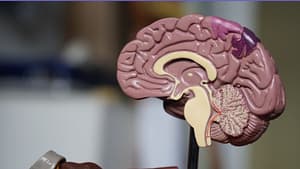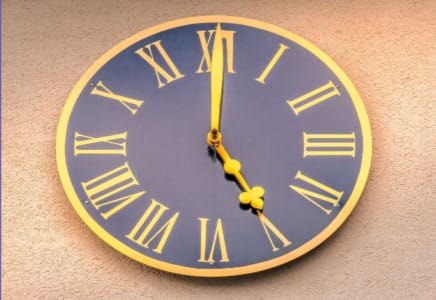How much sleep do I need is a common question. Everyone is different and so there are some generic answers that don’t fit everyone. Read on to find out more. Let’s pick a number to work with. 5 hours of sleep is a highly researched question on Google (8,100 times per month) . So 5 it is for this article. Let’s go, and no nodding off !
Is 5 hours of sleep enough?
The idea that you can get by on five hours of sleep a night may seem like the perfect solution for some people, but it could actually be doing you more harm than good. Denying yourself from getting enough sleep is going to have an effect on every aspect of your life, and eventually this will catch up with you. A minimum of seven hours of sleep for adults is recommended for good reason (1).
Why are you only getting five hours of sleep?
Worry

While there is no easy answer when it comes to effective strategies for stopping worry at night, there are some things you can try. These include practicing mindfulness techniques such as deep breathing exercises or guided meditation, keeping a journal, or speaking with a therapist or counsellor who can offer support and guidance on managing worry. It won’t solve your worries but may break the cycle of stressful thoughts interfering with your sleep.
Work Schedule

While this situation may be paying the bills, you are causing a sleep debt that can and will cause serious problems. More on that later. It may be time to see what you can do to resolve some of the issues this scenario presents. Can you commute by train, instead of a car, to free up some time to work on the journey? Can you employ a housekeeper or gardener to help out at home? Or can you cut out the commute completely and work from home? Changing your job may not be an option, but hopefully you can make more time for sleep by adopting one or more of these suggestions.
Environmental Noise

Physical Discomfort
Another reason you are only getting five hours of sleep is discomfort. This could be due to the temperature of your bedroom being too hot or too cold (5), scratchy sheets, or a lumpy mattress. These are all easily remedied and will make a huge difference to the length of time that you sleep soundly. Remember to buy a good-quality mattress and change it every eight years.
Medical Condition
Finally, you may have difficulty staying asleep for the entire night if you have a medical condition that causes insomnia or interferes with your sleep cycle. If you are only getting 5 hours of sleep a night, it is important to talk to your doctor to discuss how medical conditions, such as sleep apnoea (6) or restless leg syndrome (7), might be treated to improve your sleep.
Why is getting more than five hours of sleep important?

During sleep, your body goes through several different stages. First, you start off in the lighter stages of deep sleep, where you drift in and out of consciousness and can easily be woken up. Then your brain starts to produce slow-wave delta activity, which signals that you are moving into deeper stages of sleep. Finally, your body enters the deepest phase of REM (rapid eye movement) sleep. During this stage, you’ll experience vivid dreams (11).
The four stages of sleep tend to take approximately 90 minutes, although research is now showing this is not set in stone and can be as long as 110 minutes. Experts suggest that we need between four and six of these cycles to be fully rested (12). So if you are only getting five hours of sleep you are not even fitting in the minimum recommended number of sleep cycles.
So why do we need so much sleep, then?

What are the risks linked to only getting five hours of sleep?
Mental Health

Hormone Levels
Not getting enough sleep also interferes with hormone levels in the body, such as growth and thyroid hormones, cortisol and, of course, the sleep hormone, melatonin (17). This impacts neurotransmitter levels in the brain, which alters our mood and, ultimately, makes us feel more stressed and anxious (18).
Concentration Compromised
Not being able to concentrate or focus can affect your efficiency at work, making you less productive. Not to mention how being tired could cause you to have an accident. That could be clicking ‘send’ before you’ve finished an email, which isn’t the end of the world. But it could be crashing your car, which could be the end of your world… or someone else’s (19).
Physical Problems

Lack of sleep can take a toll on your appearance, such as dark circles under your eyes and a dull, dry, unhealthy-looking complexion (24). It’s not called “beauty sleep” for nothing. Finally, not getting enough sleep can make us grumpy, irritable and forgetful (25).
How Much Sleep Do I Need?

Please check out our article How Much Sleep Do I Need As I Age to provide more information on sleep need.
References
- How Much Sleep Do I Need? https://www.cdc.gov/sleep/about_sleep/how_much_sleep.html
- The prevalence and association of stress with sleep quality among medical students https://www.ncbi.nlm.nih.gov/pmc/articles/PMC7320447/
- Insomnia in shift work https://pubmed.ncbi.nlm.nih.gov/25277664/
- Noisy neighbours keep 13m Brits awake https://www.propertyreporter.co.uk/at-home/noisy-neighbours-keep-13m-brits-awake.html
- Effects of thermal environment on sleep and circadian rhythm https://www.ncbi.nlm.nih.gov/pmc/articles/PMC3427038/
- 10+ Signs of Sleep Apnea https://www.healthline.com/health/signs-of-sleep-apnea
- Everything You Need To Know About Restless Legs Syndrome https://www.healthline.com/health/restless-leg-syndrome
- Dissociable effects of self-reported daily sleep duration on high-level cognitive abilities https://academic.oup.com/sleep/article/41/12/zsy182/5096067
- Moderate sleep deprivation produces impairments in cognitive and motor performance equivalent to legally prescribed levels of alcohol intoxication https://www.ncbi.nlm.nih.gov/pmc/articles/PMC1739867/pdf/v057p00649.pdf
- Can You Make up for Lost Sleep? https://uamshealth.com/medical-myths/can-you-make-up-for-lost-sleep/ But what exactly happens during those crucial hours of sleep?
- Brain Basics: Understanding Sleep https://www.ninds.nih.gov/Disorders/Patient-Caregiver-Education/Understanding-Sleep
- Sleep Basics https://my.clevelandclinic.org/health/articles/12148-sleep-basics
- Sleep smart—optimizing sleep for declarative learning and memory https://www.frontiersin.org/articles/10.3389/fpsyg.2015.00622/full
- 5 Wonders of Restorative Sleep https://www.sleepscore.com/blog/5-wonders-of-restorative-sleep%E2%80%AF/
- Sleep, Learning, and Memory https://healthysleep.med.harvard.edu/healthy/matters/benefits-of-sleep/learning-memory
- The sleep-deprived human brain https://www.ncbi.nlm.nih.gov/pmc/articles/PMC6143346/
- Sleep Physiology https://www.ncbi.nlm.nih.gov/books/NBK19956/
- Chronically Restricted Sleep Leads to Depression-Like Changes in Neurotransmitter Receptor Sensitivity and Neuroendocrine Stress Reactivity in Rats https://www.ncbi.nlm.nih.gov/pmc/articles/PMC2579986/
- The Dangers of Driving Sleepy https://www.sleepassociation.org/blog-post/dangers-driving-sleepy/
- What Are Sleep Deprivation and Deficiency? https://www.nhlbi.nih.gov/health/sleep-deprivation
- Association of Sleep Time With Diabetes Mellitus and Impaired Glucose Tolerance https://jamanetwork.com/journals/jamainternalmedicine/fullarticle/486518
- Sleep duration and obesity among adults: a meta-analysis of prospective studies https://pubmed.ncbi.nlm.nih.gov/25450058/
- The Impact of Sleep and Circadian Disturbance on Hormones and Metabolism https://www.ncbi.nlm.nih.gov/pmc/articles/PMC4377487/
- Beauty sleep is real! How lack of sleep is ruining your skin. https://www.alaskasleep.com/blog/beauty-sleep-is-real.-how-lack-of-sleep-is-ruining-your-skin.
- 7 common causes of forgetfulness https://www.health.harvard.edu/blog/7-common-causes-of-forgetfulness-201302225923

